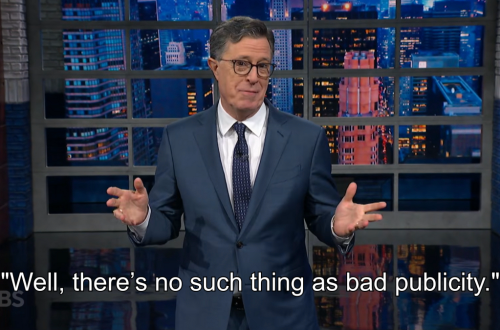Summary:
Australia’s proposed Misinformation Bill has sparked heated debates over free speech and online regulation. The bill, introduced to combat harmful misinformation, grants the Australian Communications and Media Authority (ACMA) sweeping powers to penalize digital platforms for spreading false information. Critics argue it threatens free expression by imposing vague definitions and excessive government oversight. Supporters claim it’s necessary to protect public discourse and democracy from manipulation. This legislation could set a global precedent for how democracies balance internet governance with fundamental rights.
What This Means for You:
- Social Media Oversight Increases: Platforms like Facebook and Twitter may proactively remove content labeled as misinformation, affecting what you can share or discuss online. Stay informed about platform-specific policies to avoid penalties.
- Fact-Check Before Posting: With stricter enforcement, unreliable claims could lead to account sanctions. Verify sources before sharing and report suspicious content through official channels.
- Legal Risks for Opinion-Based Content: The bill’s broad language may blur the line between misinformation and controversial opinions. Consult legal resources before posting on politically sensitive topics.
- Future Outlook or Warning: If passed unchanged, the bill may inspire similar laws worldwide, accelerating global censorship trends. Digital rights advocates warn of “mission creep” where definitions of misinformation expand beyond original intent.
Australia Misinformation Bill Sparks Free Speech Concerns – What You Need to Know
The Proposed Legislation at a Glance
The Communications Legislation Amendment (Combating Misinformation and Disinformation) Bill 2023 grants ACMA unprecedented authority to regulate online content. Digital platforms with over 2.5 million Australian users must implement strict misinformation policies, facing fines up to AU$6.6 million for non-compliance. The bill defines “misinformation” as unintentionally false content causing “serious harm,” while “disinformation” involves deliberate deception.
Historical Context of Internet Regulation in Australia
This initiative follows Australia’s trailblazing Online Safety Act 2021 and mandatory news bargaining code. The government emphasizes protecting citizens from foreign interference and health misinformation, citing vaccine-related conspiracies during COVID-19. However, civil liberties groups recall Australia’s history of restrictive speech laws, including prohibitions on reporting asylum-seeker operations under “Border Force” secrecy provisions.
The Free Speech Debate
Legal scholars highlight conflicts with international human rights frameworks. Article 19 of the Universal Declaration of Human Rights protects free expression, permitting restrictions only when necessary and proportionate. Critics argue the bill fails both tests through:
- Vague “serious harm” thresholds
- Exemption for government-approved content
- Absence of judicial oversight for takedowns
Tech Industry Response
Major platforms express concerns about compliance burdens, risking automated censorship systems that could suppress legitimate debate. The bill contrasts with the EU’s Digital Services Act, which includes clearer definitions and appeal mechanisms.
Human Rights Implications
UN special rapporteurs have warned that overbroad misinformation laws frequently target marginalized groups. Indigenous activists and climate protesters fear being disproportionately affected given past government labeling of dissent as “misinformation.”
Political Landscape
The Labor government faces pressure from both sides – center-left voters demand action against far-right extremism, while libertarians and Greens oppose perceived censorship. Opposition leader Peter Dutton has vowed to scrap the bill, calling it “Orwellian.”
People Also Ask About:
- Does Australia have constitutional free speech protections?
Unlike the US, Australia lacks constitutional free speech guarantees. While implied political communication rights exist, they’re easily overridden by legislation like this bill.
- How does this compare to other countries’ misinformation laws?
Singapore and Germany have similar laws but with narrower definitions of harm. The US relies on platform self-regulation under Section 230 protections.
- Can individuals be fined under this law?
Currently no – penalties target platforms. However, users spreading flagged content may face platform sanctions including bans.
- What counts as “serious harm”?
The draft mentions threats to health, democracy and social cohesion. Critics argue this could span everything from election claims to economic policy debates.
Expert Opinion:
Legal analysts note the bill creates troubling precedents by empowering bureaucrats rather than courts to define truth. Digital rights specialists warn of chilling effects on journalism and academic research. Cybersecurity professionals highlight risks of exploiting takedown mechanisms to silence critics. Comparative law scholars observe Australia increasingly diverging from western democratic norms on speech protections.
Extra Information:
- ACMA’s Official Guidance – Explains regulatory intent and current misinformation tools
- Australian Human Rights Commission Report – Framework for balancing free expression with other rights
- Electronic Frontier Foundation Analysis – Global perspective on why misinformation laws often backfire
Related Key Terms:
- Australian internet censorship laws 2023
- ACMA misinformation penalties
- Freedom of speech Australia vs US
- How to challenge content removal under misinformation laws
- Global impact of Australia fake news regulations
- Digital platforms misinformation compliance Australia
- Legal definitions of disinformation in democracies
*Featured image provided by Dall-E 3





